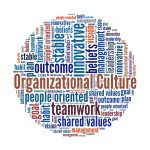Trust Takes Intention to Build or Re-Build
In my work, I often come across teams, organizations, and other relationships where there is a need to develop or re-build broken trust. What do you imagine is difficult about creating and maintaining trust in relationships?
Just recently, I had a conversation with a client who said they are entering a new relationship where they have no history with the other person. As such, they shared they are starting from a place of needing to develop trust. This is an interesting contrast to another individual I spoke with not long ago who claims they enter every relationship fully trusting the other(s) and will trust them until given a reason not to by the person(s).
How do you approach a new situation?
What do you notice about your own experience around trust?
Our past can impact how we trust or our ability to trust.
In numerous ways, our past impacts who and how we are in the present. And this includes how we trust or our ability to trust. For example, in the workplace, if you were treated poorly by a previous supervisor and trust broke down as a result, you may find it more difficult to develop trust for a new manager than someone who had not previously experienced a break-down in trust with a previous supervisor.
Trust is built between two people and relies very much on action and intention. And, it’s important to consider what you need to do to “earn” someone’s trust.
In the workplace, trust is critical to drive the best results.
When I speak with many leaders and newer managers, they often share their struggles with gaining respect and getting the most out of their direct reports. Having open conversations, showing up as vulnerable, and approaching a conversation with curiosity, are just a few ways to start deepening relationships and building trust.
Below are several additional actions that are essential to building trust:
- Follow-through on your commitments
- Be open to others’ ideas, opinions, thoughts – be open to not being right
- Let go of judgment
- Be transparent with your communication
- Listen to understand
- Practice honesty
- Build connection – show you care about the other person; inquire about them
- And much more
What do you notice about the above list?
How would you rate the level of trust in your workplace or on your team?
If you notice that there is a lack of trust in your workplace, on your team, or in specific relationships within your organization, it’s likely impacting the ability to have a healthy, high-performing team or workplace. Want to learn more about creating a culture of trust and psychological safety? I would welcome the opportunity to explore with you. Let’s connect.
“Your words and deeds must match if you expect employees to trust in your leadership.” – Kevin Kruse






